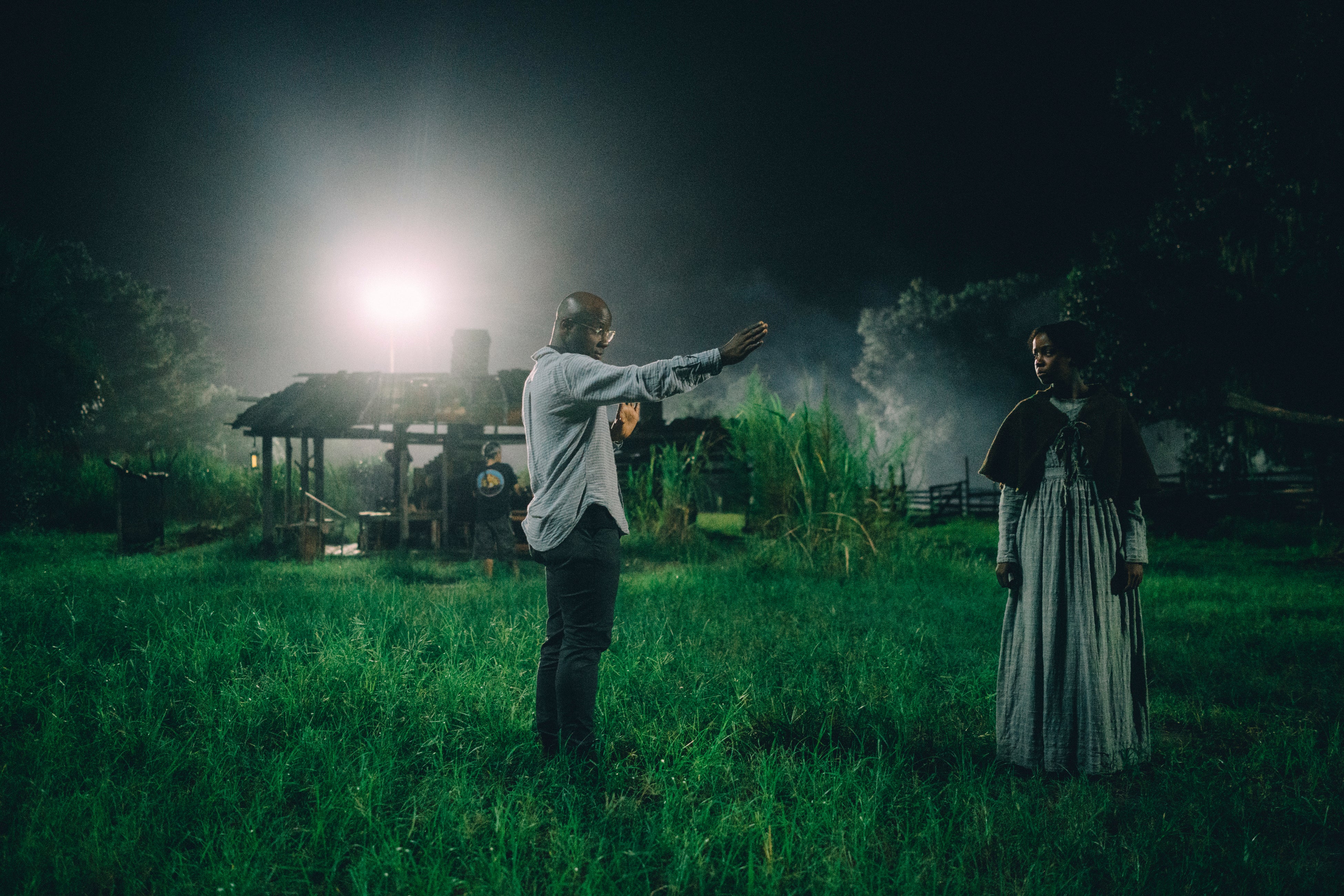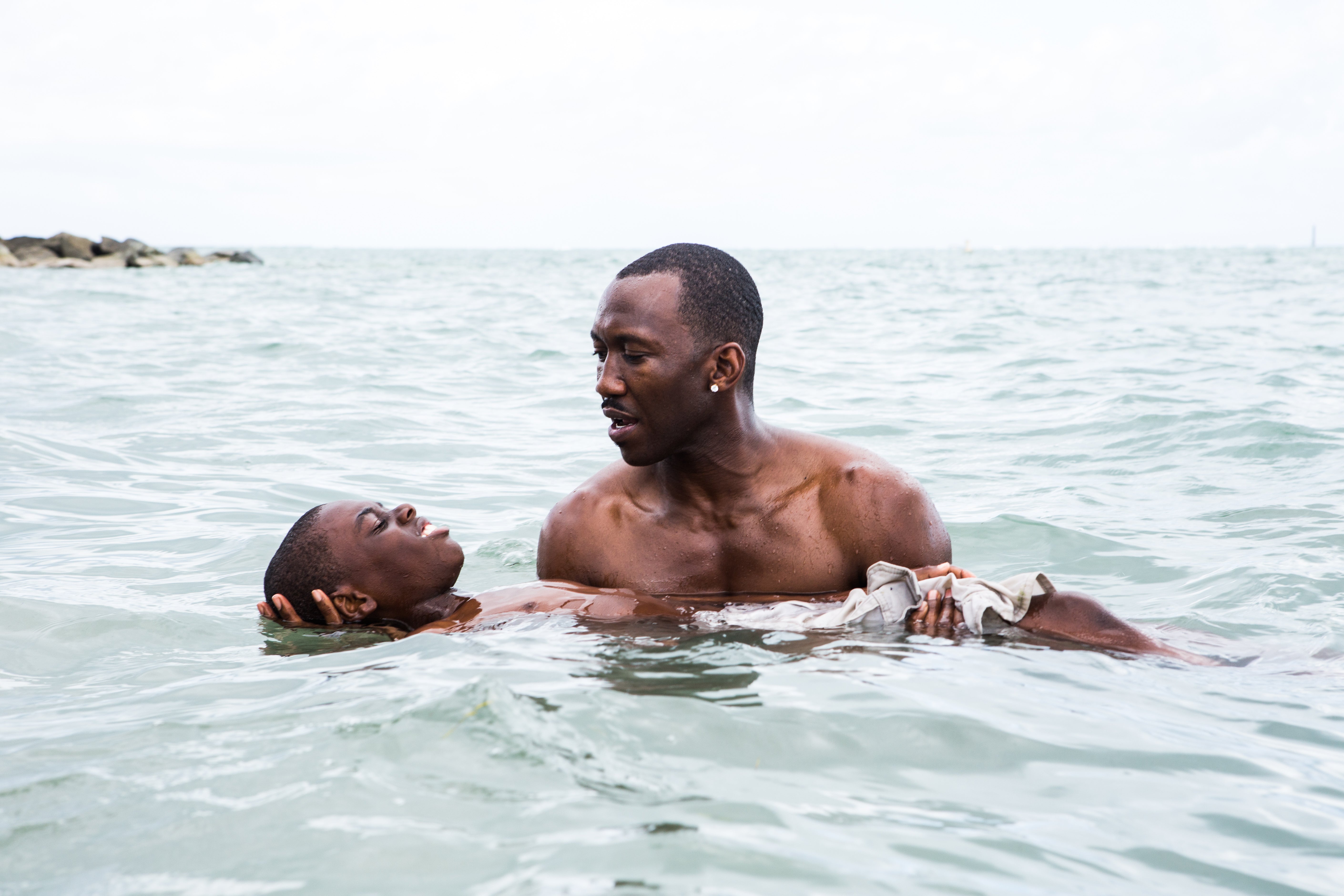Barry Jenkins: ‘If we can’t bear witness to brutality, we risk erasing my ancestors’
The ‘Moonlight’ director’s new TV series ‘The Underground Railroad’ does not flinch when it comes to graphic brutality. He tells James Mottram why he never questioned that decision

Your support helps us to tell the story
From reproductive rights to climate change to Big Tech, The Independent is on the ground when the story is developing. Whether it's investigating the financials of Elon Musk's pro-Trump PAC or producing our latest documentary, 'The A Word', which shines a light on the American women fighting for reproductive rights, we know how important it is to parse out the facts from the messaging.
At such a critical moment in US history, we need reporters on the ground. Your donation allows us to keep sending journalists to speak to both sides of the story.
The Independent is trusted by Americans across the entire political spectrum. And unlike many other quality news outlets, we choose not to lock Americans out of our reporting and analysis with paywalls. We believe quality journalism should be available to everyone, paid for by those who can afford it.
Your support makes all the difference.Four words to make Barry Jenkins shudder: Make America Great Again. “I think when you say that, there’s got to be some kind of cavity or some vacuum,” says the filmmaker, visibly perturbed at the thought of Donald Trump’s divisive 2016 presidential campaign slogan. “Because we’re not acknowledging a very particular element of American history; we’re not acknowledging a very particular element in the foundation of what this country was built on.”
That “particular element” is slavery – the backdrop to his latest work, The Underground Railroad, a 10-part Amazon series adapted from the Pulitzer Prize-winning 2016 book by Colson Whitehead. Following his last two movies, the Oscar-winning drama Moonlight and his equally accomplished James Baldwin adaptation If Beale Street Could Talk, this latest project confirms Jenkins, if we didn’t already know it, as one of America’s most potent directors.
When we talk over Zoom, the 41-year-old is a lively presence, denim-clad and yet to sound weary when it comes to answering questions about the show’s more violent episodes. The Underground Railroad focuses on Cora (South African-born newcomer Thuso Mbedu), an enslaved woman who makes a bid for freedom from the Georgia plantation where she lives and endures. Like Steve McQueen’s Oscar-winning 12 Years A Slave before it, Jenkins’s series does not flinch when it comes to graphic brutality.
One man is strung up, whipped and burnt alive. It’s truly horrifying, and will probably put some off the rest of the show. “I don’t know what to say to people who can’t get past that or can’t take that,” says Jenkins. Nothing was “falsified or over-sensationalised”, he says. Nevertheless, he deliberately didn’t adapt Whitehead’s book into a movie for the cinemas. With TV, you have control. “You get to a scene that’s too much, you can pause and fast forward through it. You can choose who you want to watch it with, and you can choose when you want to watch it.”
Jenkins took the same care with his cast and crew, especially filming such triggering images on set. “I always describe Barry as the epitome of a leader,” notes British actor Aaron Pierre, who plays Caesar, a fellow enslaved person in Cora’s orbit, “because he ensured that everyone was feeling safe, everyone was feeling supported.” That level of support stretched to ensuring there was a guidance counsellor on set at all times and even a telephone helpline that could be called.
Jenkins is all too aware of the fate that befell recent Amazon show Them, the story of a Black family that moves into an all-white LA neighbourhood and is terrorised by supernatural forces. The phrase “trauma porn” was bandied around on social media, with many complaining the show was exploiting racial prejudice for entertainment. Similarly, Jenkins read advance comments online about The Underground Railroad, with people saying they didn’t want to see depictions of slavery; “I only want positive imagery” was the cry.
If The Underground Railroad offers a “different kind of trauma”, as he puts it, Jenkins felt it essential not to buckle. “If we assume that we can’t look at these images, if we can’t bear witness to this brutality, we risk erasing my ancestors, and we risk this vacuum, this chasm, this cavity.” He pauses. “Because I can’t not tell the truth. I can’t not tell the truth.” He points out that only one-and-a-half episodes take place on the plantation. “We just barely scratched the surface of what this world was actually like, of how militaristic it actually was.”
Indeed, Cora’s journey swaps out grisly realism for metaphorical flights of fancy. The title refers to the network of safe houses and secret routes that aided runaway slaves in the American South in the 19th century, reimagined by Whitehead as a literal subterranean train track. The locomotive that spirits Cora from state to state, allowing her to witness firsthand the ills of American society in this harrowing odyssey, also took Jenkins back to his childhood in Miami, Florida.

When he first heard the phrase “underground railroad”, he took it literally. “I saw Black people on trains underground in a very grounded way. I just knew it was real. As a child – and I grew up in a very hard way – you just don’t have those filters: ‘Oh, this thing is impossible.’ None of it. And so I heard it, and I thought, ‘Oh, yeah, of course. Of course we built trains underground.’” Reading Whitehead’s book, he wanted to “lean into this feeling” he had as a child.

Watch Apple TV+ free for 7 days
New subscribers only. £8.99/mo. after free trial. Plan auto-renews until cancelled

Watch Apple TV+ free for 7 days
New subscribers only. £8.99/mo. after free trial. Plan auto-renews until cancelled
Jenkins’s tough childhood is well-documented. His mother was addicted to crack, and he grew up in the care of a woman named Minerva, who also looked after his mother, sharing a two-bedroom apartment with seven others. Where he’s from, “the idea of having a career in anything doesn’t really occur to you”. At school, he hoped to make it to the NFL. He only came to study film at Florida State University after seeing a sign for the program on his way to a football game.
Jenkins plundered early memories for Moonlight (his second feature following 2008’s Medicine for Melancholy). The coming-of-age story of a young African American struggling with his sexuality and identity in Miami’s Liberty City, this sensuous tri-part tale touched a nerve, arriving after the #OscarsSoWhite storm had led to a call for greater industry diversity. Then it happened: on Oscar night, Warren Beatty and Faye Dunaway read out the wrong card, falsely announcing musical La La Land – and not Moonlight – the Best Picture winner.
“The film was always just the film,” sighs Jenkins. “But whether that stuff happened or not, it would still be the same piece of material. I try to hold onto that. The only thing about everything that happened that is strange to me is the emotional feeling of being there. That’s the thing that I’m always trying to unpack in a certain way. Now we’re so far removed it… I heard Damian [Chazelle, the director of La La Land] describe it as very bittersweet and I think I would co-sign that.”

As Jenkins has noted, Moonlight’s win brought further unsavoury prejudices to the fore “in a slightly sinister way” – the “Oh, it’s because it was the Black film” train of thought, as he puts it. Just as Moonlight began the festival tour that ultimately led to the Oscars in 2016, Jenkins optioned The Underground Railroad, meaning the project was on a parallel track to the racial divisions fissuring in Trump’s America. “There was so much fearmongering and just so much darkness over the last four years,” he says.
Jenkins was well into production when the Black Lives Matter protests erupted last year, but even before that, the atmosphere in America simply strengthened his belief that he couldn’t soften the tougher aspects of Whitehead’s book. “Otherwise 30 years from now, some other people are going to be still on the street shouting, ‘Make America Great Again’.” He feels hopeful, at least, with Joe Biden now in the White House. “I do think people’s hearts and minds are expanding even just a little bit right now.”
Jenkins’s next planned movie – a sequel to The Lion King – may just reflect this uplift. He watched the original 1994 Disney cartoon “literally hundreds of times” with his nephews, but the chance to make a follow-up to Jon Favreau’s 2019 hit remake, created using state-of-the-art “virtual reality” tools, was intriguing. “There’ve only been five or six films made in the style of this Lion King film. The script is great. It’s a completely new mode of filmmaking. And I was at a point in my career where I felt like I wanted to stretch myself [and] that’s allowed me to do that.”
Jenkins was also encouraged by Chloé Zhao, who has followed her Oscar-winning Nomadland with another Disney blockbuster, the forthcoming Marvel superhero ensemble Eternals. While some will doubtless see this as a worrying trend in cinema, as art-house darlings are snapped up by the studios for their latest cash cows, Jenkins sees it as vital to keep the door wide open for people of colour to direct on this grand, operatic scale. If he’s doing it, it’ll help filmmakers in the future get the same opportunities.
In “two years, three years, four years, five years”, he wants to ensure industry equality across the board. “I didn’t want [studios to say] ‘Oh, but you’re just an indie director from the projects. You can’t possibly make one of these films.’ It’s like, ‘No, Barry Jenkins did it. And so now any damn body can do it.’" In his eyes, The Lion King is a chance for him to lead the way. "So we’re gonna do it, man. We’re gonna put our heart into it, the way we put our heart into everything else.” He stares back. “So that’s what I got, man!”
‘The Underground Railroad’ streams on Amazon Prime Video from 14 May



Join our commenting forum
Join thought-provoking conversations, follow other Independent readers and see their replies
Comments